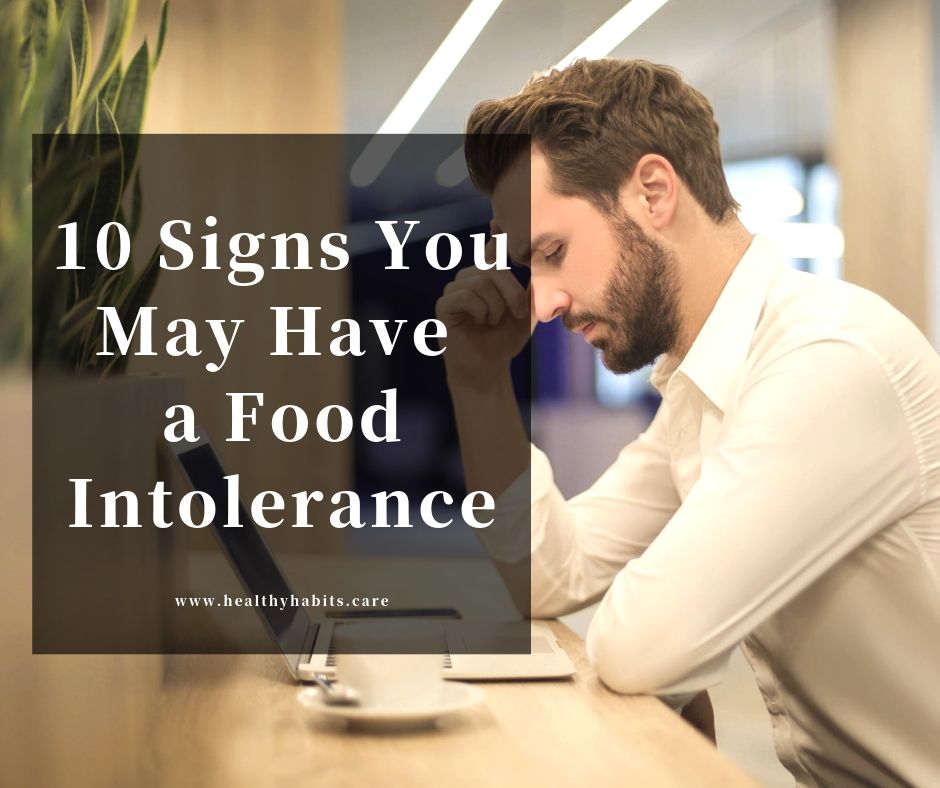
“A food intolerance is a digestive problem that results after eating a particular food or food group,” Jim White, RDN, ACSM EX-P, Owner of Jim White Fitness and Nutrition Studios, tells us. A food intolerance is different than a food allergy in that it doesn’t produce an immune reaction to the specific food or food group. That means, your immune system isn’t triggered and therefore won’t produce a histamine response.
“For example, if someone has a peanut allergy and ingests a peanut-containing product, they may experience anaphylaxis and require immediate medical attention, whereas someone with a lactose intolerance who consumes a lactose-containing product may have a stomach ache as a result. Though less severe in response, food intolerances are not to be taken lightly as they frequently lead to a decreased quality of life due to pain, discomfort, and the avoidance of certain foods.”
While bloating and gas are two of the most common side effects, a food intolerance can trigger some other bizarrely unconventional reactions. These are the 10 signs you may have a food intolerance, straight from experts.
Fatigue
“Fatigue results from an inflammation and immune response. Your body has to work harder since the food is not completely digested so the food and has a more taxing effect on your body rather than the energizing effect you hope for after eating. This may result in fatigue and inflammation. Fatigue can also result from a food allergy because your immune system is expending a good amount of energy trying to remove the food protein ‘invader.’”
—Gina Hassick, MA, RD, LDN, CDE, NCC
Bloating and Cramping
“Enzymes are proteins that act on certain foods to help break them down. Some people lack the necessary enzymes to properly break down certain foods. This lack of food breakdown or digestion can lead to the feeling of bloating or stomach cramping. One of the most common intolerances that produce this symptom is a lactose intolerance. Lactose intolerance is caused by a deficiency in the enzyme lactase which breaks down the disaccharide or sugar in milk called lactose.”
—Jim White, RDN, ACSM EX-P Owner of Jim White Fitness and Nutrition Studios
Migraines
“Sulphites are preservatives that are commonly found in wine, dried fruit, some condiments, and other pre-packaged foods. An individual who has a sulfite intolerance may experience headaches, migraines, and even asthma-like symptoms after consuming these products. There is no true test to diagnose this intolerance, however, keeping a food log and removing these foods from the diet could reveal an intolerance if symptoms resolve.”
— Jim White
Gas
“Gas and bloating are often caused by high FODMAP foods. People often don’t realize that avoiding FODMAPs long-term might control symptoms but it doesn’t address the reason they’re reacting poorly to highly fermentable foods. In my practice, I usually see this from bacterial overgrowth. The tolerance to high FODMAP foods improves when people treat the underlying cause.”
—Miriam Jacobson, MS, RD, CNS
Joint pain
“Joint pain is a result of inflammation which may be the result of a food allergy or intolerance. Any immune system reaction has the potential to trigger joint pain.”
—Gina Hassick
Hives
“Food allergy symptoms often vary from food to food. Some foods such as nuts and fish are accompanied by anaphylactic reactions, which can be life-threatening if not treated with an EpiPen. Oftentimes an anaphylactic reaction will include symptoms such as an itchy throat, trouble breathing, and hives. However, many minor reactions are also accompanied by hives, normally in the facial region. This type of reaction normally indicates an intolerance to a food consumed in the past few minutes or within the hour. Hives on the tongue are normally indicative of a more severe reaction, but can also be triggered by a sensitivity to nightshade vegetables such as eggplant or red peppers.”
—Leah Kaufman, MS, RD, CDE, CDN
Diarrhea and Constipation
“The most severe form of a gluten intolerance is celiac disease. Celiac disease is an autoimmune disorder where the body attacks the villi of the small intestine in response to the presence of gluten (the protein found in wheat, rye, and barley). Essentially, gluten confuses the body to attack itself rather than the foreign substance. This disease presents widespread issues including but not limited to constipation, diarrhea, malabsorption of key nutrients like vitamin D, iron, and B12, skin rashes, headaches and migraines, steatorrhea (oily stool), chronic fatigue, and chronic weight loss.
Non-celiac gluten sensitivity is a less severe form of the gluten intolerance where the body doesn’t have an autoimmune response but still does not handle the ingestion of gluten well. Studies show that 50 percent of gluten sensitive individuals experience diarrhea and 25 percent may experience constipation. Every case of these issues does not point to a gluten intolerance. However, if persistent, these symptoms may be worth exploring.”
— Jim White
Arthritis
“Just as people who suffer from migraines usually have an immune component, an immune component can also trigger arthritis. Inflammation from gut hyper-permeability leads to higher levels of immune modulators that create inflammation.”
— Miriam Jacobson

























